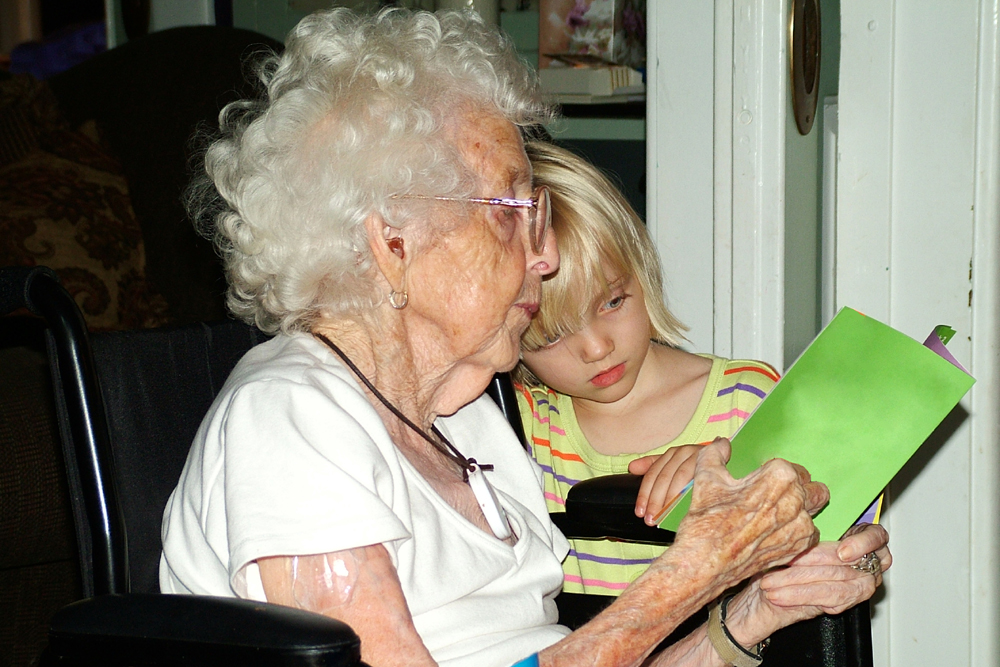What to Say to Someone Who's Had a Stroke
If you’re like most people, when you visit someone in the hospital who is seriously ill, you’re frequently at a loss for what to say to them. If they’re elderly and have just suffered a stroke or illness that has left them confused and/or unable to communicate easily, it becomes even harder to know what to say.
Neurologist Jill Bolte Taylor, PhD suffered a significant stroke at age 37. She has since written a book called My Stroke of Insight, about her experience, in which she shared what she needed from her visitors:
“I needed people to come close and not be afraid of me. I desperately needed their kindness. I needed to be touched – stroke my arm, hold my hand or gently wipe my face if I’m drooling. I know it can be very uncomfortable for a healthy person to try to communicate with someone who has had a stroke, but I needed my visitors to bring me their positive energy. Since conversation was obviously out of the question, I appreciated when people came in just for a few minutes, took my hands in theirs, and shared softly and slowly how they were doing, what they were thinking and how they believed in my ability to recover.”
A study published in 2008 by nurses and doctors at Queens University in Canada (The psychosocial spiritual experience of elderly individuals recovering from stroke: a systematic review) concluded that in the days leading up to a stroke and the early days right after a stroke, stroke patients are most likely to be confused and frightened.
How to Communicate With a Stroke Survivor
If their ability to understand, hear or speak is impaired because of the stroke or medical equipment (ie, breathing tubes), then use simple methods to communicate.
- Make eye contact
- Make physical contact – hold their hand or touch their arm
- Speak slowly and clearly. Unless they have suffered hearing loss, you don’t need to speak more loudly than usual, but it may help to emphasize key words
- Ask simple questions that would require only yes or no answers, and suggest simple responses to indicate yes or no, such as squeezing your fingers, blinking, or making gestures.
- Give them time to respond verbally and/or physically
Below, Eugene Speech Therapy provides some additional tips for supporting a loved one who’s had a stroke, and how to communicate with them.
Their Do’s and Don’ts For Stroke Patient Communications:
- Do use pictures and text
- Do speak with short phrases vs long sentences
- Do offer options to choose from when responding
- Don’t speak for them, it’s rude and inconsiderate
- Don’t talk down to them
- Don’t ignore them in social situations, engage them in the conversation
Tip: If you send a get well card to someone who’s had a stroke, tuck a picture of yourself inside
For more information about stroke recovery and communication for stroke victims, consult these resources:
MyStrokeofInsight.com – resources, inspiring stories, and tips for stroke victims, their friends and families.
Heart and Stroke Foundation (Canada)
This article is for informational purposes only and is not intended as medical or mental health advice, nor is it a substitute for professional medical or mental health advice, diagnosis, or treatment. Always seek the advice of a qualified physician or mental health provider with any questions you may have regarding a medical or mental health condition.
Note: This article was first published in 2015. It has been updated with new & additional content.
More About Heart Disease, Heart Attacks, High Blood Pressure/Hypertension, And Strokes
Atrial Fibrillation: Risk Factors
Heart Attack Symptoms (men)
Signs of a Heart Attack For Women
Hormone Therapy for Menopause and Heart Disease
High Blood Pressure: Risks, Causes, and Prevention
High Blood Pressure: Fish Oil Supplements
Peripheral Artery Disease: Symptoms & Risk Factors

